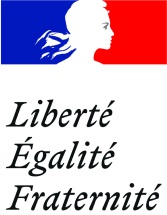The Transatlantic Mobility Program offers eligible institutions grants of up to $20,000 for a duration of two years to expand joint innovative education initiatives on both sides of the Atlantic.
The Transatlantic Mobility Program offers funding for American and French Higher Education Institutions (HEIs) to co-develop integrated education programs through mobility.
The program is a joint effort between Albertine Foundation, the Embassy of France in the United States, and the Embassy of the United States of America in France to offer eligible institutions grants of up to $20,000 for a duration of two years to expand joint innovative education initiatives on both sides of the Atlantic.
The United States and France aim for a robust network of educational partnerships and exchange programs to reach the next generation of transatlantic leaders, who will shape Franco-American relations for decades to come.
To increase the number of students from France and the United States studying abroad in the context of integrated degrees, Higher Education Institutions must build strong partnerships and develop innovative and sustainable cross cultural pedagogy models.
Proposals will be evaluated on how projects can effectively produce richer offerings for students willing to experience French and American academic cultures.
Proposals
The mobility of scholars and students is crucial to keep laboratories and classrooms informed of the latest pedagogical innovations. We seek proposals in all disciplines and at all levels (Bachelor’s / Master’s / PhD). Applicants should target durable pedagogical partnerships bringing closer different academic traditions. This entails mostly teaching initiatives but we also welcome projects straddling between innovative pedagogies and research.
The histories of successful joint programs highlight the importance of gradual progress and careful planning in achieving comprehensive partnerships. We encourage proposals that demonstrate a clear pathway for capacity building and the development of innovative programs, emphasizing the importance of step-by-step progress toward establishing a fruitful partnership.
Importantly, the Transatlantic Mobility Program initiative is focused on fostering the groundwork for these academic collaborations rather than serving as a direct funding source for students studying abroad. Proposals that provide tangible evidence of advancements in forging academic alliances will be particularly valued, underscoring our commitment to nurturing the foundation of lasting partnerships.
The following components will be prioritized during the selection of applications:
- Specificity of the proposed program in the current degree programs of each partner.
- Attractive features of the new program for French and U.S. students.
- Implementation steps and a timeline of milestones leading to an integrated program.
- Applying institutions showing prior collaborations with each other will be considered in priority.
- Clear commitment and support from the institutions’ leadership to engage in a process that will lead to creating integrated educational program will be considered in priority.
- Demonstration of the project leaders’ capabilities in developing such programs in collaboration with an international partner or outlining the steps for capacity building for the project proponents. Equally important are the precedents that partners can mobilize to justify the new initiative. These precedents can either be theirs (prior degrees with other partner institutions) or models from prior partnerships between other universities that they draw upon and can list as successes.
Application and Calendar
Call for Applications Open: April 17, 2024
Application Deadline: July 15, 2024
Please submit applications via the Albertine Foundation website here.
Contact
Vincent Lépinay,
Higher Education Attaché – New York
Inès Arcia,
Higher Education Program Officer
For more information about the Transatlantic Mobility Program (TMP), click here.
Eligibility FAQs
Who can apply for the Transatlantic Mobility Program?
The grant program is intended for higher education institutions located in the United States and in France.
Can we include programs based in Overseas French Territories?
Yes. This is highly encouraged.
Can US satellite campuses (in France) be considered as eligible partners?
No. Partners must be institutions accredited in France.
May two or more United States / French HEI collaborate on a single proposal?
Yes. Proposals may involve more than one institution from each country, but one institution must be designated the prime applicant and will receive the funds from the Embassy. Grant management cannot be split between two institutions.
What is the selection process?
A jury composed of qualified representatives of the French Embassy in the United States and of the Embassy of the United States of America in France will select three to four proposals and communicate with the applicants mid-July about the results.
Proposal FAQs
What is the duration of the program?
The grant period lasts for a maximum of two years.
What do you mean by reciprocity?
We expect the two institutions to be equal partners in the project proposal. The curriculum has to be jointly designed and any change to the program would require prior agreement by both teams.
Can this grant support a virtual program?
Virtual exchanges are important means for connecting institutions and fostering faculty collaboration. However, the program must include an in-person international experience for participating students and faculty.
Can I include appendices with my application?
Yes. We will accept additional attachments that further detail the proposal including a proposed detailed program, planned marketing materials, etc. They must be sent along with the other documents as one pdf file.
Budget FAQs
What is the amount of the grant?
Eligible institutions can receive a grant of up to $20,000.
What is 1:1 cost matching?
You will need to match the grant offered by the Albertine Foundation, which cannot represent more than 50% of your total budget.
Can staff costs be part of the cost matching?
Yes. Staff costs can be accepted as part of the cost-share. However, these costs should not take up the majority of the budget. You can include it in the indirect costs.
Can the budget include faculty training and involvement?
Yes. The proposal should detail how budgeting for faculty training and involvement might increase the number of students involved.
How will Albertine Foundation distribute the grants?
A first payment of 70% of the grant will be disbursed to the lead institution after signature of the contract between the two institutions and the Albertine Foundation. Upon completion of the project, the second 30% payment will be paid.
Please follow the Transatlantic Mobility Program’s budget template and upload it with the application.
2023 Laureates
In 2023, six Higher Education Institutions from France and the United States received a grant to expand and diversify study abroad programs on both sides of the Atlantic.
Austin Community College
Institut Universitaire de Technologie de Haguenau
ACC-UNISTRA STEM Exchange
Chapman University
INSPE Normandie Caen – Université de Caen Normandie
From Normandy to California
University of Texas at San Antonio
Université de Toulouse
MAT-MOVE: Advancing Materials Science through Graduate Student Mobility: A Collaborative Research Exchange Program between UTSA, UT, and UTT
University of Iowa
Université Paris 8-Vincennes-Saint-Denis
Productive Frictions:
A Transatlantic Program Writing for New Media in Paris-Saint-Denis & Iowa City
University of Nebraska-Lincoln
Universite de Rouen Normandie
Shock Wave Assembled Macromolecules:
A Strategy by US-France Program to Promote R&D and Workforce Development for Commercial Space & Aerospace Industries
University of Oklahoma, College of International Studies, Department of International and Area Studies
Université Clermont Auvergne
PATHWAYS
2022 Laureates
Babson College
TBS Education (Toulouse Business School)
Transatlantic Exchange Program: An Accelerator within the Entrepreneurship Ecosystems
University of Cincinnati
University of Lorraine
Expanding the Global Technical Workforce
University of California, Irvine
Université Gustave Eiffel
Doctoral Workshop in Urban Planning and Urban Studies, Irvine/Marne-la-Vallée
University of Central Florida
Ecole CentraleSupelec, Univeristy of Paris Saclay
France-US exchange program to support education and development of technologies to reduce the anthropogenic impact on the climate
Florida International University
Ecole nationale supérieure de mécanique et des microtechniques
FIU – ENSMM Transatlantic Mobility
Craig Newmark Graduate School of Journalism
Ecole nationale supérieure Louis-Lumière
The Photo Bridge: Paris & New York



